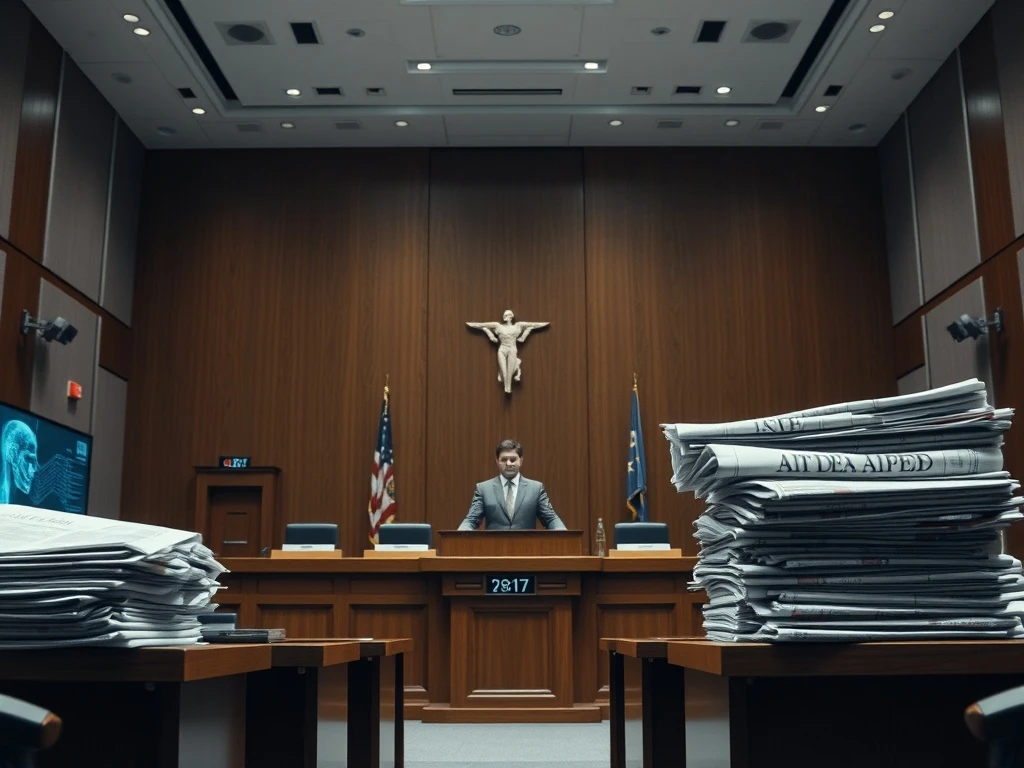The artificial intelligence industry faces a monumental legal challenge as Nikkei, owner of the Financial Times, launches a massive copyright infringement lawsuit against Perplexity AI. This groundbreaking case could reshape how AI companies utilize journalistic content and potentially redefine digital copyright standards for years to come.
Perplexity AI Copyright Infringement Allegations Escalate
Japanese media giant Nikkei and The Asahi Shimbun have filed a joint lawsuit accusing Perplexity AI of systematic copyright violations. The companies claim the San Francisco-based startup illegally used their premium content, including paywalled articles, since June 2024. Consequently, this legal action represents one of the most significant challenges to AI content usage practices.
Substantial Financial Stakes in Perplexity AI Case
The media groups seek substantial financial compensation alongside injunctive relief. Specifically, they demand 2.2 billion yen (£11.1 million) each in damages. Additionally, they request court orders to prevent further content reproduction and mandate deletion of already-used data. Moreover, this case highlights the growing tension between content creators and AI developers.
Journalism Foundation Under Threat
The publishers issued a stark warning about the broader implications. They emphasized that unchecked AI content scraping threatens journalism’s fundamental integrity. Furthermore, they argued that accurate fact-based reporting requires proper compensation and protection. Therefore, this case extends beyond financial concerns to democratic principles.
Perplexity AI Copyright Infringement Response
Perplexity AI dismissed the allegations as “manipulative and opportunistic” despite mounting legal pressure. The company, valued at $18 billion with 30 million users, maintains its position as an AI-powered search engine. However, it faces multiple lawsuits across continents, including from News Corp and BBC.
Revenue Sharing Initiatives
In response to publisher concerns, Perplexity launched compensation programs. The revenue-sharing model distributes advertising income when referencing publisher content. Several major media organizations have joined, including:
- The Independent and Der Spiegel
- Time and Fortune magazines
- Los Angeles Times
Broader Industry Implications
This Perplexity AI copyright infringement case could establish crucial precedents. The outcome may determine how AI companies and news organizations collaborate on content monetization. Additionally, it might influence future digital copyright legislation and AI development practices.
CEO’s Cooperative Stance
CEO Aravind Srinivas expressed commitment to publisher partnerships. He stated that AI should enhance internet quality while ensuring proper content compensation. Furthermore, he emphasized willingness to adjust approaches based on industry feedback and legal requirements.
Legal Proceedings Progress
Recent court developments indicate serious judicial consideration. A New York federal court rejected Perplexity’s motion to dismiss News Corp’s similar case. This suggests that courts recognize the substantive nature of these copyright infringement claims.
Future Monetization Plans
Perplexity plans additional publisher compensation mechanisms. Reports indicate a new scheme linking to their Comet internet browser. This system would allow earnings from content-driven traffic, search queries, and AI assistant usage.
Industry-Wide Impact Assessment
The resolution of this Perplexity AI copyright infringement case will reverberate throughout technology and media sectors. It may establish new standards for AI-content relationships. Ultimately, it could determine whether AI companies and traditional publishers become partners or adversaries.
Frequently Asked Questions
What specific content does Nikkei claim Perplexity AI copied?
Nikkei alleges Perplexity used Financial Times and Asahi Shimbun articles without permission, including premium paywalled content, for AI training and response generation since June 2024.
How much financial compensation are the media companies seeking?
The lawsuit demands 2.2 billion yen (£11.1 million) in damages from each plaintiff, totaling approximately £22.2 million for both Nikkei and Asahi Shimbun.
What is Perplexity AI’s response to the copyright allegations?
Perplexity dismissed the claims as “manipulative and opportunistic” while simultaneously implementing revenue-sharing programs to compensate publishers for content usage.
Are other media companies taking similar legal action?
Yes, News Corp (owner of Dow Jones and New York Post) and BBC have also filed lawsuits or threatened legal action against Perplexity for similar copyright infringement allegations.
What solutions has Perplexity proposed for publisher compensation?
Perplexity launched advertising revenue-sharing programs and is developing additional monetization schemes through its Comet browser that compensate publishers for traffic and content usage.
How might this case affect the broader AI industry?
The outcome could set crucial precedents for AI-content relationships, potentially establishing new copyright standards and determining how AI companies and publishers collaborate on content monetization.








